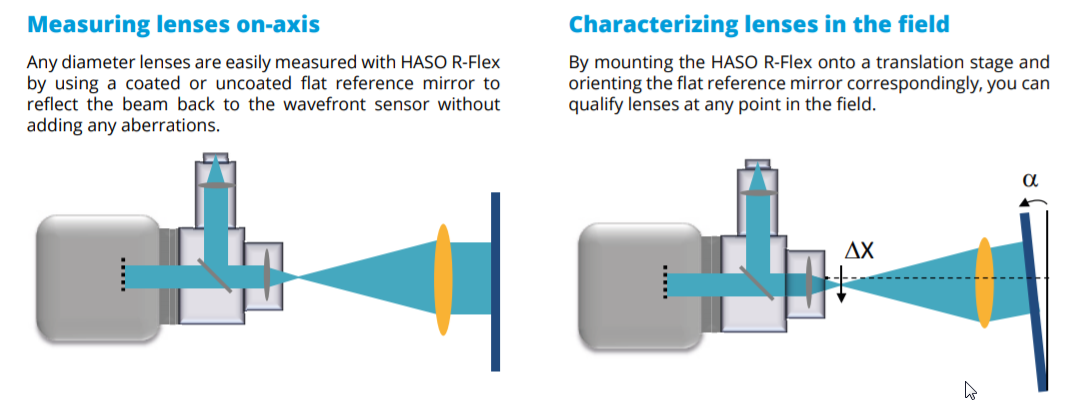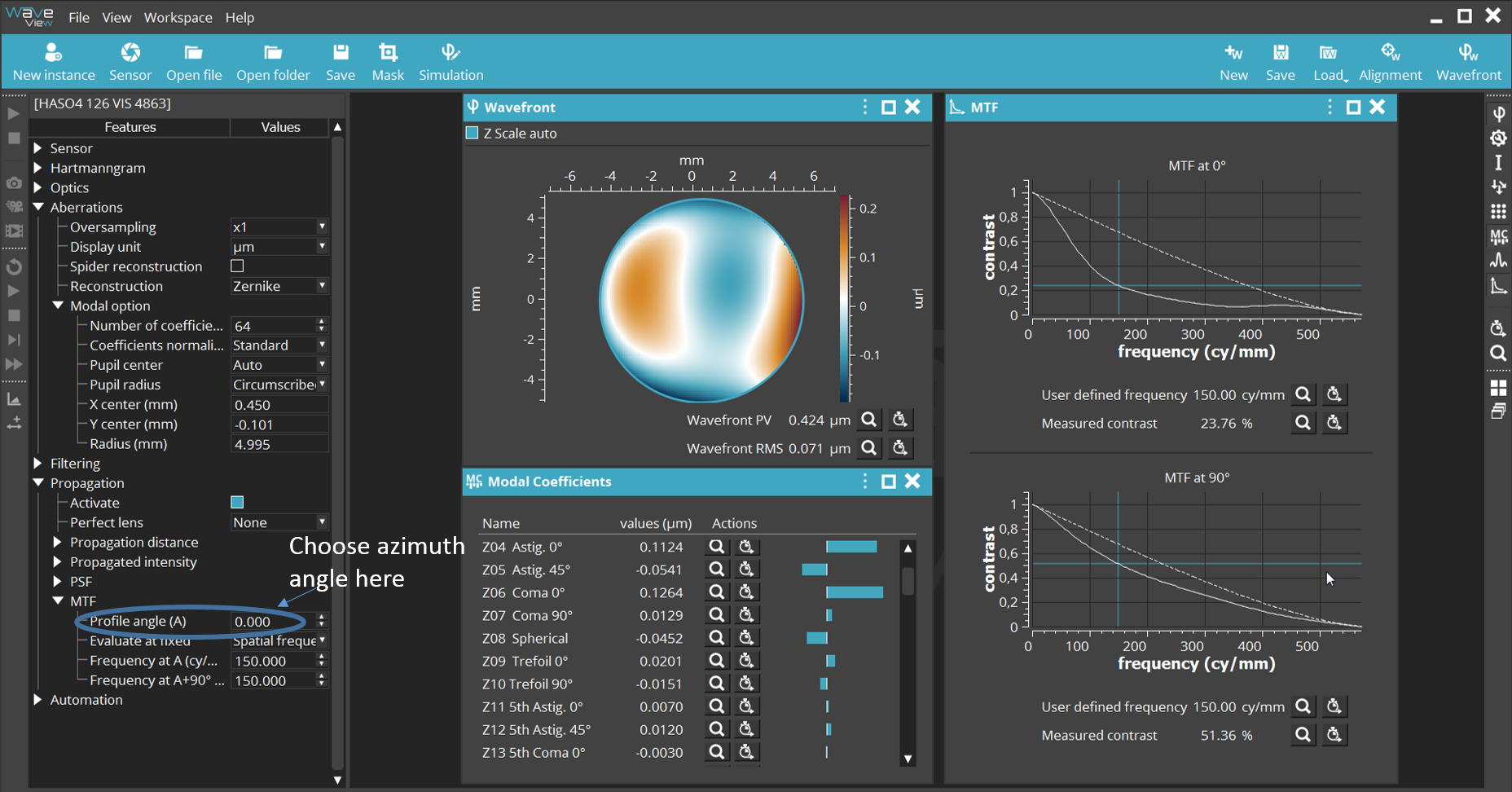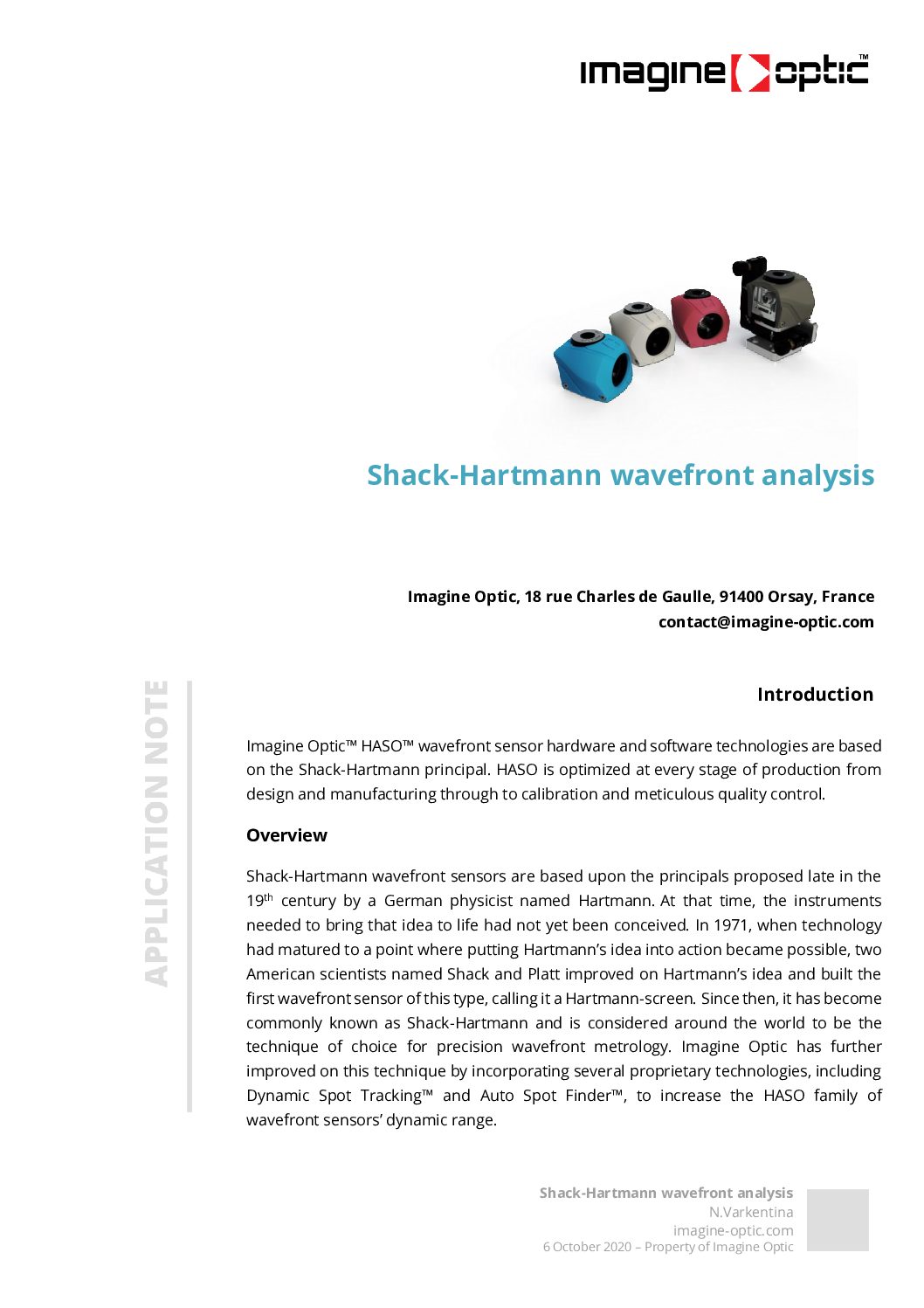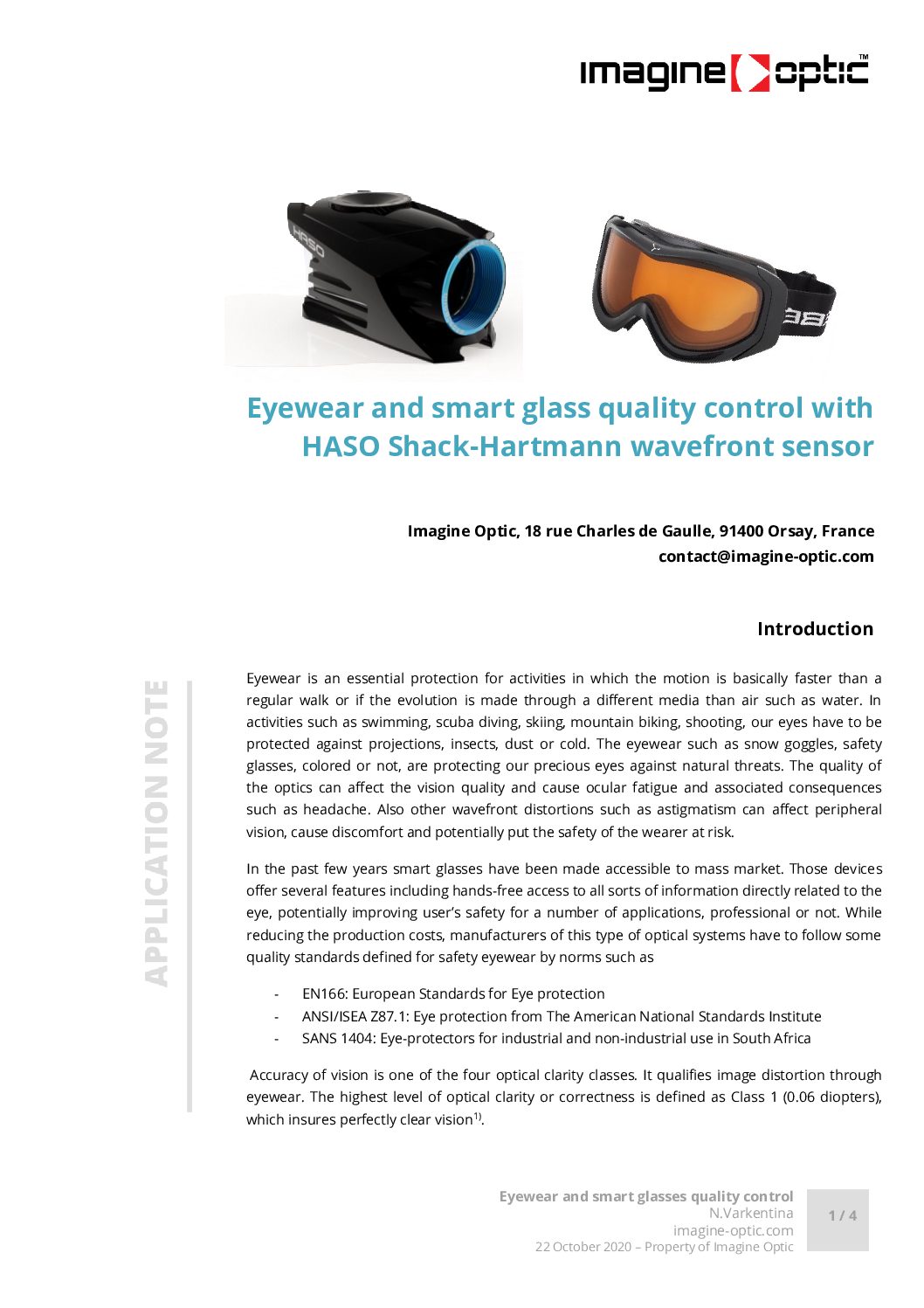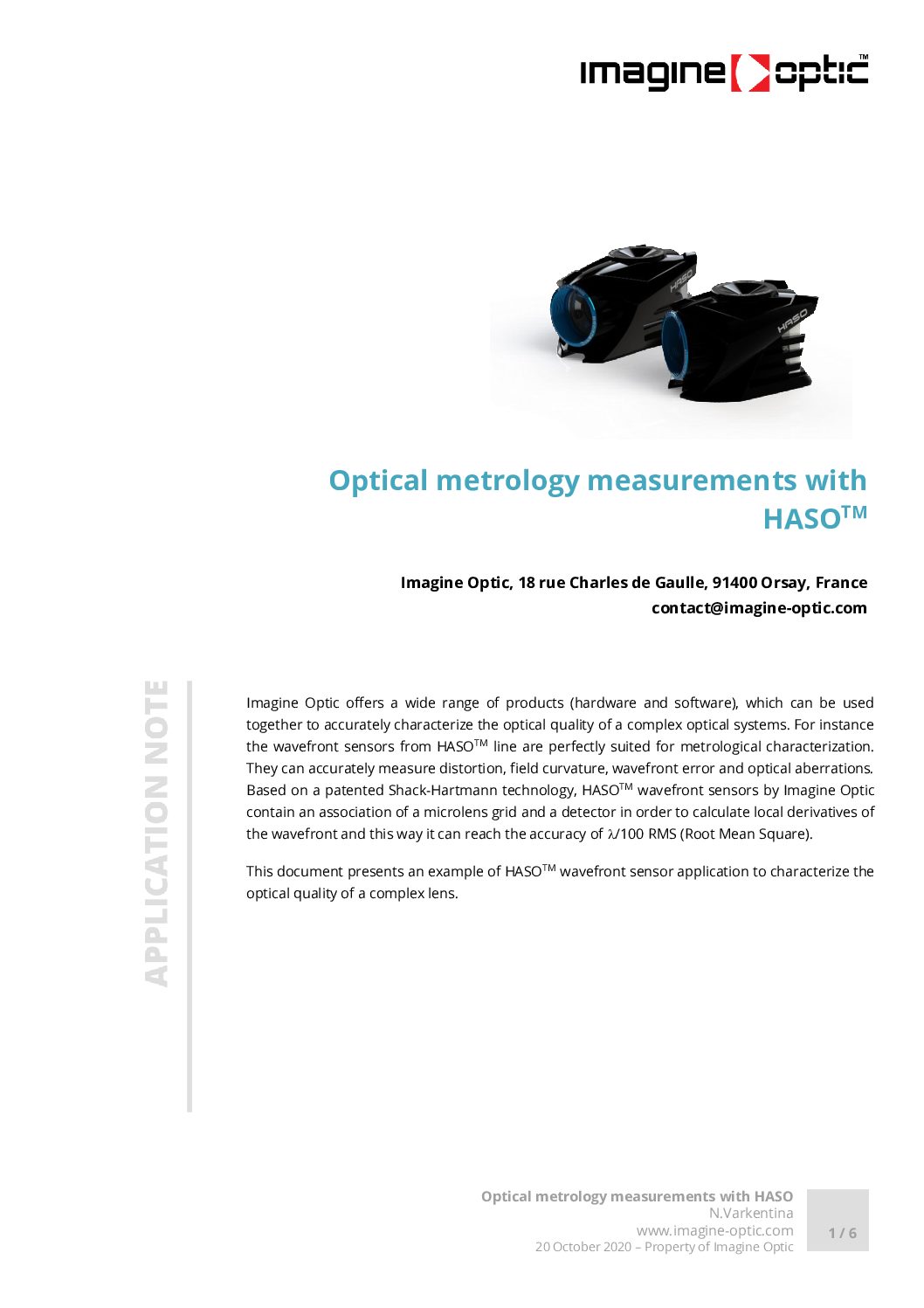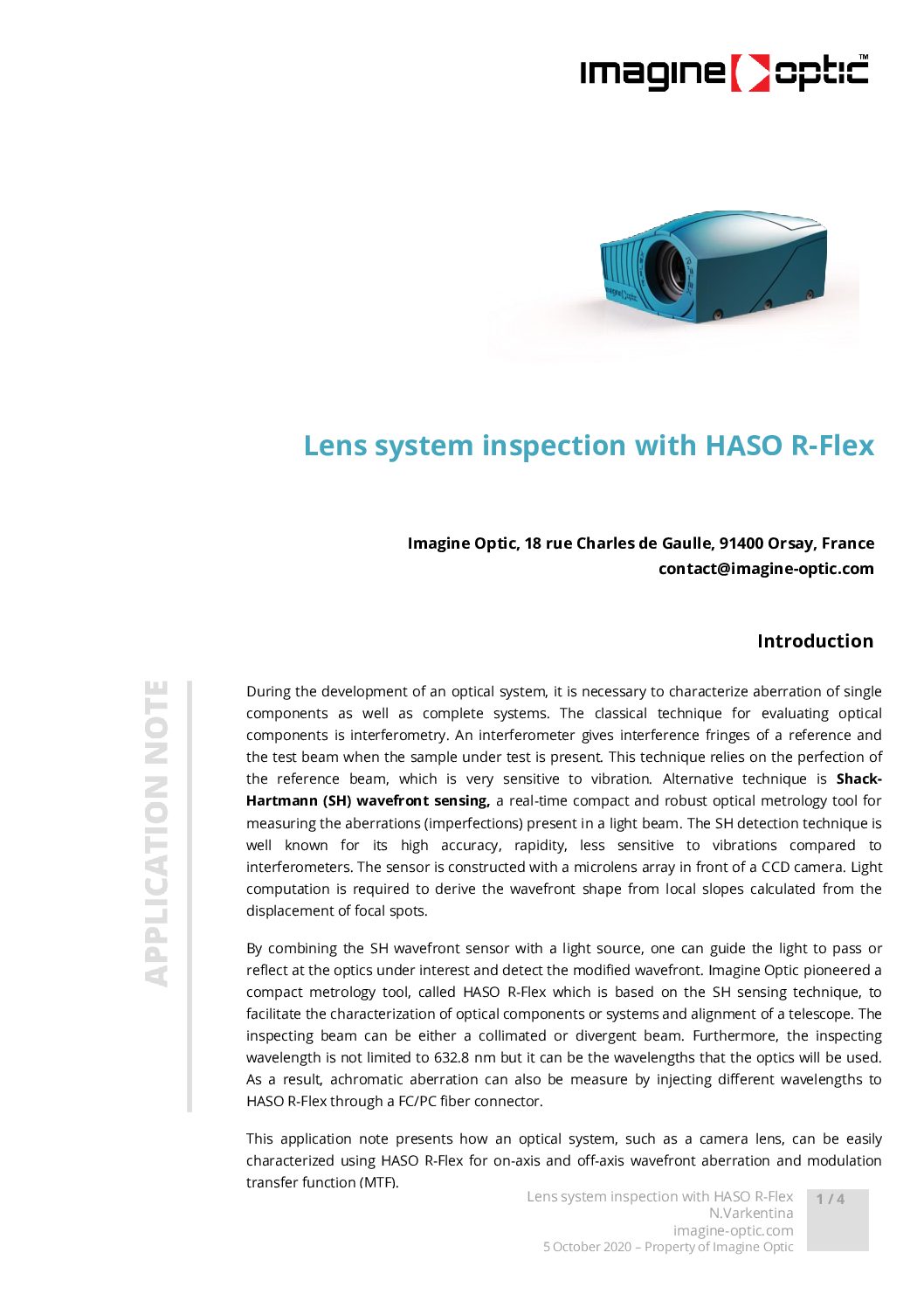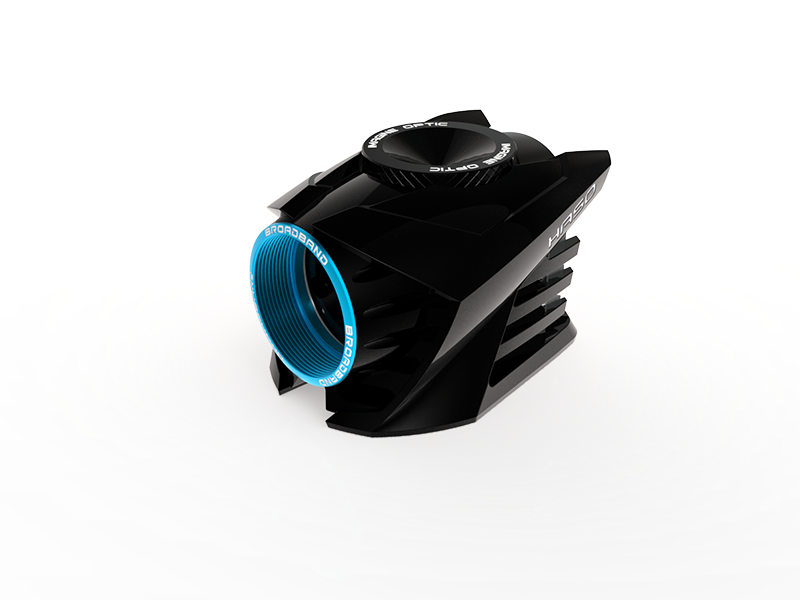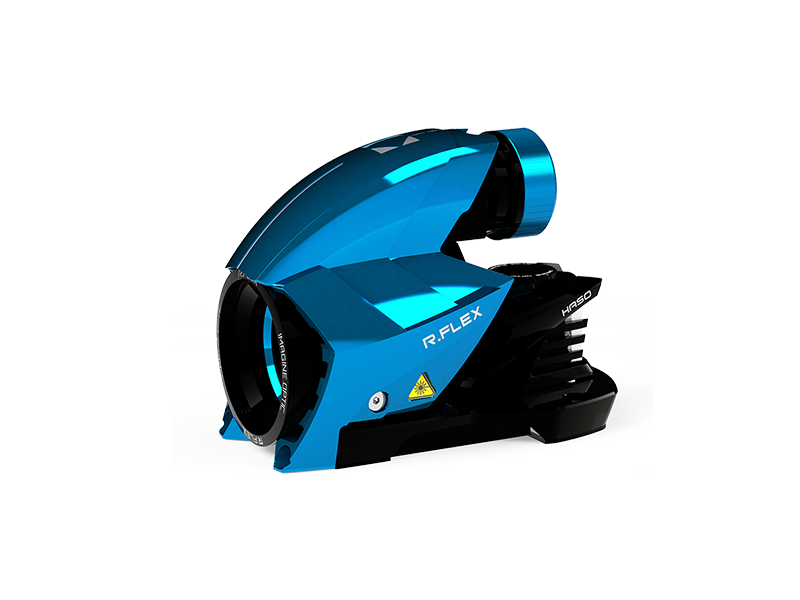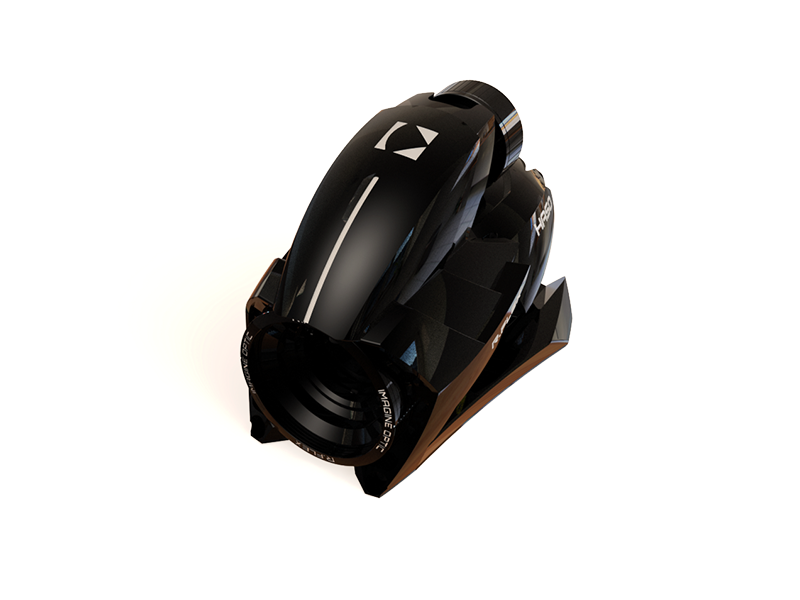Modulation Transfer Function – MTF
Home / Applications / Optical Metrology / Modulation Transfer Function – Lens aberrations MTF
The MTF (Modulation Transfer Function) measurement of a lens is the most common way to characterize the optical quality. There are many ways to perform this measurement. Most of them are based on measuring the contrast of a specific test pattern imaged by the lens of interest. This type of measurement is a direct way to qualify the MTF of a lens, but it does not allow tracing the origin of the problem if the lens does not have the expected optical quality.
Wavefront measurement is an alternative way to measure MTF, and it is certainly the most complete way to characterize the quality of an optical system. Indeed, one single wavefront measurement gives direct access to the aberrations of the lens of interest and also to the MTF measurement on all directions. Knowing the aberrations is key for pinpointing the origin of possible problems in case the MTF of the lens is not as good as expected.
Imagine Optic has developed a whole range of instruments, based on wavefront measurement, perfectly adapted to the characterization of optical systems in single or double pass configuration.
In single pass configuration, the objective to be characterized is placed behind a collimator, and the wavefront measurement is performed with a wavefront analyzer from our HASO range placed behind the focal point of the objective. In double pass configuration, the use of the RFlex2 (self-illuminated wavefront sensor) allows easy measurement of the optical quality of the lens of interest. The R-Flex2 illuminates this lens, via the focal plane, with a beam whose numerical aperture is adapted to that of the lens, and a plane mirror can be placed in autocollimation at the lens’s exit to measure its aberrations (see example of assembly below). Whether in single or double pass configuration, our measurement solutions allow on-axis and off-axis measurements.
Once the setup is done, a single wavefront measurement allows a complete characterization of the lens: both the measurement of aberrations decomposed on the basis of Zernike polynomials and the measurement of the MTF on all azimuths (what we call the 3D MTF).

